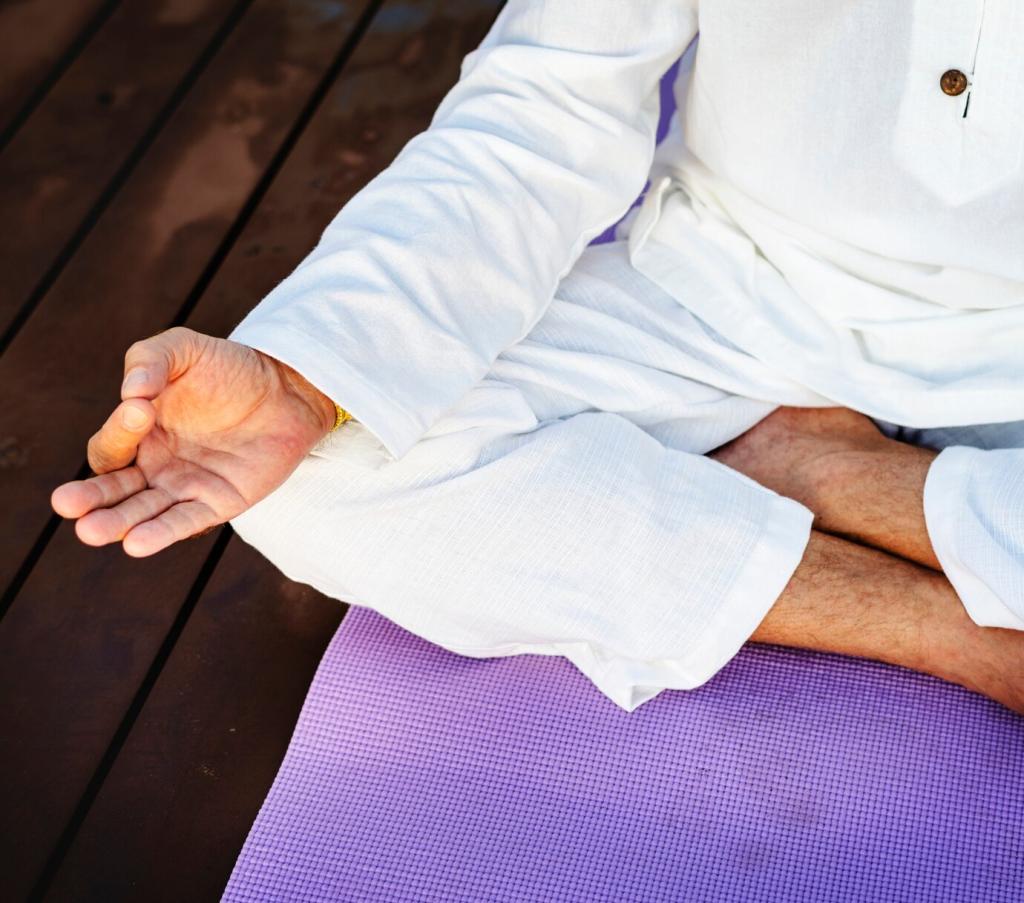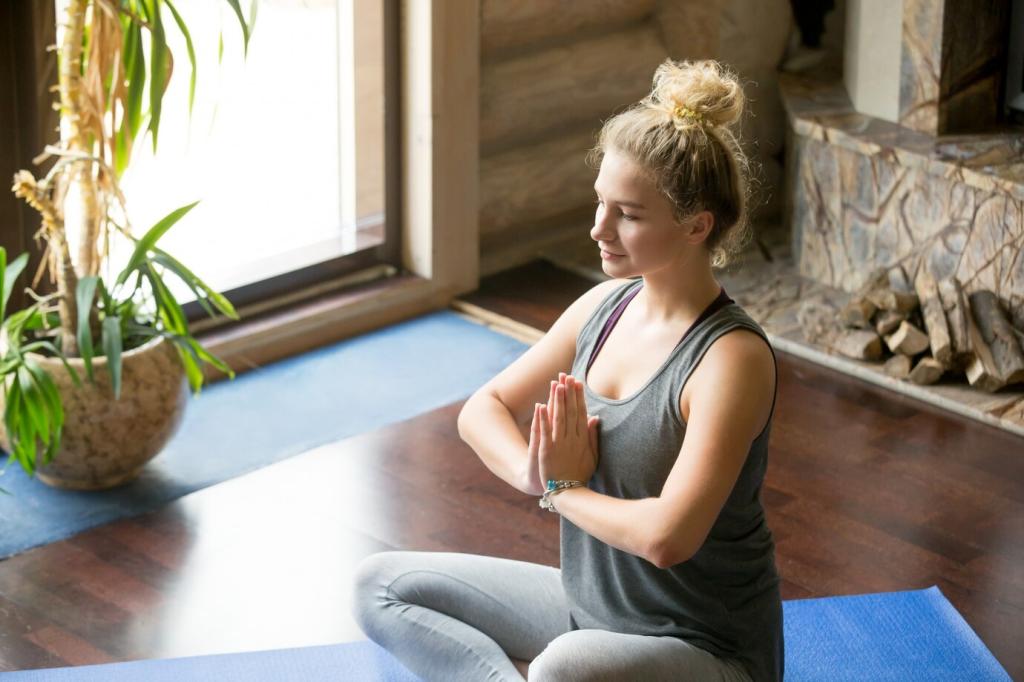
Aromatherapy and Meditation for Recovery: Breathe, Restore, Begin Again
Chosen theme: Aromatherapy and Meditation for Recovery. Welcome to a gentle space where scent and stillness work hand in hand. Whether you are healing from stress, rebuilding after illness, or recovering your focus, we explore simple rituals that help you breathe a little deeper, rest a little better, and feel a little more you. Subscribe, share your progress, and grow with a community that cheers for every small step.
Why Aromatherapy and Meditation Work Together in Recovery
Scent travels quickly to the limbic system through the olfactory bulb, touching emotion and memory before thought can intervene. When paired with slow breathing, aromatic cues may reduce perceived stress, improve heart rate variability, and prime the brain for focused meditation. This gentle pairing helps your recovery feel less like a struggle and more like a steady, supported rhythm.
Why Aromatherapy and Meditation Work Together in Recovery
Slow, extended exhales signal safety to the nervous system, easing you from fight-or-flight into rest-and-digest. Try inhaling a chosen aroma for four counts, then exhaling for six to eight, repeating for a few minutes. With each cycle, your attention anchors to breath and scent, building a reliable pathway back to grounded presence during recovery.
Crafting Your Personal Recovery Ritual
01
Choose oils with intention
Match your goal to your blend: for muscle soreness, consider peppermint and rosemary; for deeper sleep, try lavender and Roman chamomile; for focus, think sweet orange with frankincense. Always dilute properly, respect personal sensitivities, and keep oils away from eyes. A quick patch test can save you from discomfort and keep your ritual safe and supportive.
02
A 10-minute scent-and-breath session
Settle for one minute, noticing the contact points of your body and the soft rise of breath. For three minutes, inhale for four and exhale for six while cupping a diluted aroma near your nose. Continue with a gentle body scan for three minutes, then finish with two minutes of gratitude. Keep posture easy, shoulders loose, and distractions silenced.
03
Track progress with a gentle journal
After each session, write three quick lines: how you felt before, the blend or scent used, and one small change you noticed. Note sleep quality, mood, pain, or focus on a simple scale. Over time, patterns appear, guiding smarter choices. Share highlights with our community and subscribe for monthly prompts and printable reflection pages.
Designing Spaces That Help You Heal
Bedroom reset with evening diffusion
About an hour before bed, dim lights, reduce screen glare, and diffuse a simple blend like lavender, cedarwood, and bergamot. Keep airflow steady and be mindful of pets and children. Let the scent cue your body toward rest. Aim for a consistent routine so your bedroom becomes a predictable ally in your nightly recovery practice.
A mindful shower with eucalyptus steam
Place a few drops of eucalyptus on the shower floor away from the direct water stream, or use a shower steamer. Breathe deeply as steam lifts the aroma and your thoughts slow. If you have respiratory sensitivities or children nearby, use caution and consider gentler options like spearmint or a hydrosol mist. End with gratitude for your body’s effort.
Micro-meditations at your desk
Keep an inhaler stick with a comforting blend at work. Every hour, pause for ninety seconds: inhale calmly, lengthen the exhale, soften eyes, and stretch your back. This small reset protects your focus during recovery and breaks the cycle of tension. Want more prompts? Subscribe for a weekly micro-practice you can do anywhere.
Guided Practices for Different Recovery Needs
Dilute peppermint and rosemary in a carrier oil and apply lightly to sore areas, avoiding broken skin. Sit comfortably and scan from toes to head, greeting each sensation without judgment. Pair this with measured breathing and brief visualization of circulation improving. Always follow medical advice, and use aromatherapy as a complement, not a replacement.
Guided Practices for Different Recovery Needs
Try a soft citrus like bergamot or a floral like neroli as a scent anchor. Begin with hand-on-heart breathing, then shift into a loving-kindness meditation for yourself and others. One reader, a tired teacher, used this nightly for two weeks and reported steadier mornings. Tell us what shifts for you, and help encourage someone else.


Safety, Sensitivity, and Smart Choices
For daily body use, aim for around one percent dilution; for short-term targeted support, two percent may suffice. Store oils in dark glass away from heat and sunlight to reduce oxidation. Be aware of phototoxic citrus oils like expressed bergamot on sun-exposed skin. Freshness, clarity of labeling, and reputable sourcing matter more than trendy claims.
Safety, Sensitivity, and Smart Choices
Always patch test diluted blends and discontinue if irritation occurs. If you are scent-sensitive, consider hydrosols, unscented breath meditation, or neutral objects as anchors. You can even imagine your favorite scent as a mental cue. The goal is comfort and consistency, not forcing fragrance. Your recovery pathway should feel kind and adaptable.
Safety, Sensitivity, and Smart Choices
If symptoms persist, worsen, or feel overwhelming, consult a qualified professional such as a physician, therapist, or physiotherapist. Aromatherapy and meditation are supportive tools, not cures. A trauma-informed approach can make practices safer and more effective. Save this page, share it with a friend, and remember that asking for help is a strength.


Community and Continuity
In the comments, describe your current blend in three words, the time of day you use it, and how it changes your mood. Stories spark ideas for others and help you notice progress. Your voice matters here, and your small insights may be exactly what someone else needs today.
Community and Continuity
Commit to a short daily practice: five to ten minutes with your selected aroma, gentle breath work, and a single line of reflection. We will send reminders, variations, and a printable calendar to mark each day. Subscribe and invite a friend, because shared accountability keeps compassion at the center of recovery.
